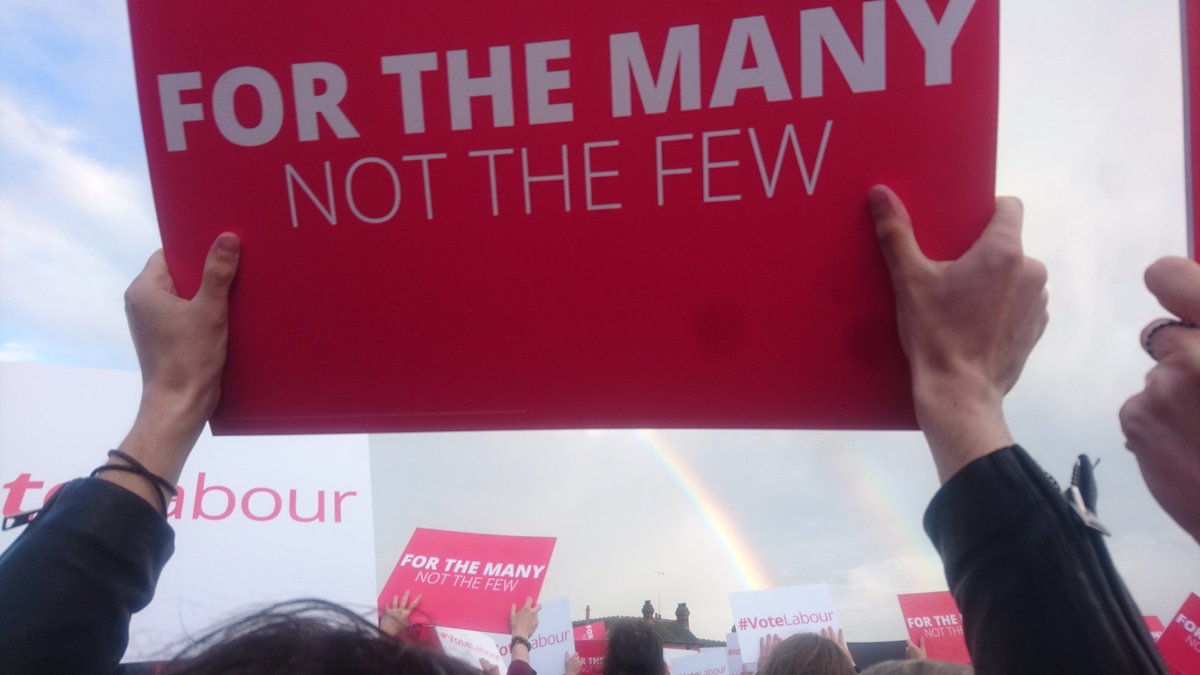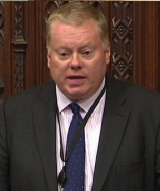Lord Roy Kennedy of Southwark is a Labour and Cooperative peer and shadow minister of communities, housing and local government.
Where next for the people’s party?
Having worked in the West Midlands regional office during the general election campaign, Lord Roy Kennedy reflects on Labour's electoral successes and how the party can build on these in the months and years to come. Harold Wilson famously told us...
Having worked in the West Midlands regional office during the general election campaign, Lord Roy Kennedy reflects on Labour’s electoral successes and how the party can build on these in the months and years to come.
Harold Wilson famously told us ‘a week is a long time in politics.’ The prime minister has learnt that lesson and the folly of calling a totally unnecessary general election for purely party political advantage. The voters have given their verdict and she has been left humiliated, diminished and a prisoner of her backbenchers and the DUP and with a party hopelessly divided.
The Labour party did not win either but has come out of this bruising election more united, more confident, in good spirits – and with an increased number of seats and large increase in the popular vote.
Jeremy Corby clearly motivated people to go out and vote with his message of hope. The manifesto proved popular and even the leak helped get it more positive coverage.
The question we need to ask ourselves is, ‘where next for the people’s party?’
To answer is that we need to look at the campaign and the result in detail and learn from the good and not so good aspects. We need to examine where we find ourselves today and how that shapes our plans as we move forward at the start of a parliament which could last five months or five years.
Having spent the days in Westminster since the election, there is no appetite on the Conservative benches for another election anytime soon. The returning Conservatives are in a state of shock and openly critical of the prime minister on what is generally acknowledged to be one of the worst Tory campaigns in living memory.
The campaign was arrogant and woefully underestimated both Jeremy Corbyn and the Labour party’s capacity to speak to voters, to deliver leaflets and communicate to people through a variety of mediums in a highly effective manner with clear messages that resonated.
Both ‘Strong and Stable’ and ‘Teresa May’s Conservatives’ became by lines for everything that was wrong about the Tories and just reinforced the image of a PM not in control and reluctant to face the media, the public or even Jeremy Corbyn.
What has also become clear in this election is that the endorsement by – or attacks from – newspapers are becoming less effective as circulations drops everywhere and both news and opinion is sought from a wide variety of electronic online sources.
So what went well in the Labour campaign? For me it was being able to connect to the public with a message of hope that things can be done differently. This resulted in more people registering to vote and actually casting their vote – some for the first time – across the age ranges and not just young people. Indeed, I heard reports of people going into polling stations asking why was Jeremy Corbyn’s name not in the ballot paper.
Both You Gov and Survation picked up on this and the increased likelihood of young people and previous non-voters of actually going to vote and as a result their polling was generally more accurate that other polling companies who gave large leads to the Conservatives.
The number of activists campaigning was impressive, though the numbers were less dramatic in the Midlands and the North when compared to London and parts of the South East. On more than one occasion I spoke to people who said they did not have enough work for people to do when they came along to help, particularly in London. This was apparent in places with large crowds of people posing for photographs that were posted on Twitter and Facebook.
Our social media campaign (probably for the first time) beat the Tories who largely appeared to rely on attacks on Jeremy Corbyn and other members of his team and gave people no vision of hope or that things could be better.
So a positive campaign, a mostly well received manifesto, a large number of motivated activists campaigning and a good social media presence.
What was not so good was a failure to connect with large numbers of voters in previously Labour held seats specifically in the white working class areas. Although, suffering from years of austerity, people in these areas were not convinced that we offered a solution to their problems. For example, in Basildon the incumbent Tory increased his majority and two of the six losses we suffered on 8 June were in North East Derbyshire and Mansfield, in the heart of the former Derbyshire and Nottinghamshire coalfields.
The challenge for Jeremy Corbyn and the Labour party in this next period is to understand fully what happened on 8 June: to build on the manifesto’s positive reception and to refine the offer we present to the electorate. We need to keep the people who have supported us this time but also bring back to the Labour party those voters that supported us from 1997 to 2010 but have not yet been convinced that we have the solutions to the problems they face or those of the wider country. It is likely there is a correlation between this group of people and those who voted to leave the European Union last year.
In theory it is not very difficult; people living in Britain have a genuine sense of fairness and want public services responsive to their needs and will pay a fair amount towards that. They do not like people or organisations that flout the rules and do not make their fair contribution. Under the Conservatives life is being made tougher and it harder for people to get on – working people are trapped in zero hour’s contract employment and people are paying extortionate rents for housing in the private sector. This is not the British way.
Developing the narrative that explains, that convinces, that gives people hope (particularly from those communities that did not support on the 8 June) that we have the innovative solutions to improve the wellbeing of them and the country at large is the task at hand.
Both Jeremy Corbyn and Tom Watson acknowledged this was a key challenge for us at the first meeting of the parliamentary Labour party following the general election. If we understand the issues correctly, and provide solutions to the problems, we can earn the trust of the voters to return us to office and deliver – as previous Labour governments have – ‘for the many not the few’.

